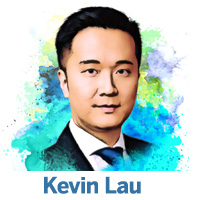As US President Donald Trump officially embarks on his second term in 2025, a review of his first-term policies and recent statements reveals an increasingly hard-line stance toward China, particularly in the critical domains of trade and technology. This policy trajectory will undoubtedly exert a profound and far-reaching impact on the development of Sino-American relations. Hong Kong, as an inseparable part of China, cannot remain detached from these shifts in the international landscape.
 Delving into the trade dimension, Trump’s imposition of additional 20 percent tariffs on Chinese goods is akin to hurling a boulder into the already strained waters of Sino-American trade relations, inevitably intensifying friction between the two sides. Hong Kong, long established as a pivotal international trade hub, holds a significant position within the global trade framework. While studies suggest that the direct impact on Hong Kong’s exports may be relatively limited, the investment landscape tells a different story. The heightened uncertainty in Sino-American trade relations could prompt some international investors, wary of risks, to reduce or even withdraw their investments in Hong Kong, posing a considerable challenge to its economic growth. Furthermore, the United States has already revoked Hong Kong’s special economic status, putting it on par with the Chinese mainland. Looking ahead, under Trump’s tougher policy stance, the US is likely to further tighten its measures, presenting a formidable test for Hong Kong, renowned as an international financial center.
Delving into the trade dimension, Trump’s imposition of additional 20 percent tariffs on Chinese goods is akin to hurling a boulder into the already strained waters of Sino-American trade relations, inevitably intensifying friction between the two sides. Hong Kong, long established as a pivotal international trade hub, holds a significant position within the global trade framework. While studies suggest that the direct impact on Hong Kong’s exports may be relatively limited, the investment landscape tells a different story. The heightened uncertainty in Sino-American trade relations could prompt some international investors, wary of risks, to reduce or even withdraw their investments in Hong Kong, posing a considerable challenge to its economic growth. Furthermore, the United States has already revoked Hong Kong’s special economic status, putting it on par with the Chinese mainland. Looking ahead, under Trump’s tougher policy stance, the US is likely to further tighten its measures, presenting a formidable test for Hong Kong, renowned as an international financial center.
Yet there is cause for optimism: Hong Kong possesses unique and inherent advantages. Its distinctive “one country, two systems” framework affords it a special status on the global stage. Hong Kong can adeptly leverage this systemic strength to align with Premier Li Qiang’s call at the two sessions for “deepening international exchanges and cooperation”, redefining its image and positioning itself as a vital bridge for dialogue between East and West. As a Hong Kong deputy to the NPC, Lee Shing-put, aptly noted, this directive aims to encourage Hong Kong to capitalize on its strengths rather than criticize its current state.
A compelling example lies in the recent success of the “Consensus Hong Kong” conference, which drew nearly 10,000 participants from 102 countries and regions worldwide, with a combined asset management scale exceeding $4 trillion. Such events not only underscore Hong Kong’s innovative dynamism in emerging fields like Web3 and digital assets, but also affirm its strategic value as a national “sandbox”. In recent years, the Hong Kong Special Administrative Region government has proactively advanced Web3 development — issuing virtual asset trading licenses and launching the Digital Transformation Support Pilot Programme — hoping to harness the institutional flexibility of “one country, two systems” to test new economic models for the nation.
Amid growing global attention to digital assets, it is impossible to overlook the Trump administration’s cryptocurrency summit on March 7. Trump delivered a keynote address, joined by CEOs and investors from the crypto industry. Having previously declared his intent to prioritize cryptocurrency policy and position the US as a global hub for blockchain innovation, this summit might have set the tone for America’s regulatory approach to cryptocurrencies over the next four years, reflecting the US’ proactive deployment in the digital-asset arena. For Hong Kong, it represents both a challenge and an opportunity. Hong Kong must seize its “national sandbox” role, enhancing dialogue with the international Web3 community — through events like “Consensus” to attract global entrepreneurs — while showcasing its policy advantages to the world.
Notably, the central government’s recent emphasis on Hong Kong “deepening international exchanges and cooperation” does not imply a reliance on traditional finance or political figures to expand ties. Professor Lau Siu-kai has pointed out that Hong Kong should focus on new economic frontiers, such as supporting the nation’s push for renminbi internationalization and Regional Comprehensive Economic Partnership development, while attracting talent in IT and Web3 industries, rather than leaning solely on conventional approaches. The SAR government must take a more proactive stance in engaging the global tech community — for instance, utilizing media professionals to broadcast Hong Kong’s innovation ecosystem worldwide, rather than confining efforts to traditional political and business circles.
In conclusion, Hong Kong is not without recourse in the face of the challenges posed by Trump’s policies. Premier Li’s directive to “deepen international exchanges and cooperation” charts a clear course: leveraging Web3, digital assets, and other new economic domains as entry points, maximizing the “sandbox” function, and strengthening ties with the global innovation community. Hong Kong’s media should also play a “nerve center” role, promoting stability and development amid the complex Sino-US rivalry through objective, accurate reporting and proactive diplomatic outreach. With the collective efforts of all sectors of Hong Kong society, I am confident that the city will sustain its pivotal role on the international stage, perpetuating its trajectory of prosperity and vitality.
The author is a specialist in radiology, Master of Public Health of the University of Hong Kong, and an adviser of the Our Hong Kong Foundation.
The views do not necessarily reflect those of China Daily.


